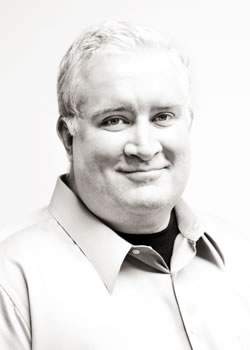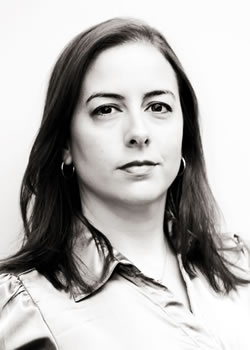
Most Denver psychologists do not specialize in anxiety and impulse disorders. Moreover, many Denver therapists who do treat anxiety disorders do so without having the requisite training and experience necessary to effectively work with these difficult problems. When choosing a Denver therapist, then, you must be diligent.
AMI's therapists are highly experienced anxiety and impulse disorder therapists. AMI hires only the finest, most highly trained therapists in the latest and most effective cognitive therapies proven to effectively treat anxiety and impulse disorders. AMI's clinical effectiveness rate (inclusive of all cases, and whether medication is or is not used) is over 85%.
 Doctor Parker Wilson, Buddhist Minister, and Director Of The Awakened Mind Institute, Denver Psychotherapy Center
Doctor Parker Wilson, Buddhist Minister, and Director Of The Awakened Mind Institute, Denver Psychotherapy Center
Fundamentally, anxiety and impulse disorders are about emotional control. They begin in small ways, usually in adolescence, and are reinforced thousands of times until they eventually take on a life of their own. These disorders run in families, but likely not in a biological sense. Anxiety and impulse disorders are basically a series of afflictive mental habits and they are likely, in many subtle ways, handed down from one generation to the next.
Featured Audio File From Dr. Parker Wilson On: What Is Happiness - A Buddhist Psychological Perspective
Below, you can listen to Dr. Parker Wilson's public talk: What Is Happiness - A Buddhist Psychological Perspective (31 minutes):
Article Continued ...
Anxiety is a thin stream of fear trickling through the mind. If encouraged, it cuts a channel into which all other thoughts are drained. Summers Roche.
The Experience Of Anxiety Is Really Just A Fundamental Resistance To Our Emotional Experience Of Life
When we become afraid to connect with our own emotions, the overt experience of anxiety is created and reinforced. For example, if we are fundamentally afraid of experiencing the emotion of grief, then whenever any hint of grief arises in the mind we become strongly resistant, highly reactive, and this produces a strong sense of anxiety. Every time anxiety is produced, it creates a pattern or habit in our mind. Now whenever the feeling of grief arises again, even slightly, we will be even more likely to resist the experience, become reactive, and our anxiety becomes even more powerful.
This is a basic law of psychology: everything becomes easier with repetition. This includes the cultivation of anxiety.
We have many labels and stories for our emotions. Some of our emotions we label as "good," and we have corresponding stories for them. We grasp at these "good" emotions, wanting them to stay, and to never leave. Some of our emotions we label as "bad," and again we have our corresponding stories. We are averse to these "bad" emotions, and we wish they would never arise. We deeply dread any time when we might experience them.
Do you want to know the sure fire way to stay anxious? Don't do the thing that makes you nervous! Larina Kase
With the "bad" emotions, we usually tell the story of how something is wrong with us or the world around us, how there is something that needs to be fixed, and how we shouldn't be experiencing this "bad" emotion. Our strong belief in the validity of this story sets us up from the outset as nothing more than a passive victim of our life and mind.
- Again, take grief as an example. When grief arises in our minds, we get very reactive to its presence. We tell stories about how our grief shouldn't be there, about how unfair it is that we're experiencing it, and we often work ourselves up further by telling exaggerated and catastrophic stories, and making the emotional experience far more painful then it otherwise would be. Doesn't this sound like a pretty anxious and panicky state of mind?
- Let's take another common emotion that qualified Denver psychologists working with anxiety see all to often in their clients: the feeling of helplessness.
Chronic Helplessness Is An Emotion That All Denver Therapists See In Their Clients, And That's Because We All Experience Periodic Moments Of Helplessness
The emotion of helplessness, in and of itself, is not a problem, there is nothing wrong with it. Its when the experience of helplessness becomes chronic and overwhelming, inappropriate to the situation, that problems truly begin.
When most of us feel powerless, our label for that experience is "bad," and the corresponding story is "I am such a weak and unfortunate person for feeling this." Because we are so fear based about any experience of helplessness, we become anxious. Because we can not effectively work with our own mind to transform the helplessness and anxiety, we will attempt to control the external world in an effort to avoid ever feeling helpless and anxious again. Of course, this effort is futile and only deepens the basic problem. When controlling the outside world fails, we seek to control the inside.
 Doctor Kathryn Oliver, Child and Family Psychotherapist, The Awakened Mind Institute, Denver Psychotherapy Center
Doctor Kathryn Oliver, Child and Family Psychotherapist, The Awakened Mind Institute, Denver Psychotherapy Center
In Denver Therapy, We Often See People Who Are ...
... numbing out the anxiety with alcohol, illegal and prescription drugs, or sex.
- People often develop control rituals around counting, washing, etc, in an attempt to free themselves from anxiety.
- Some people develop impulse disorders around the condition of their skin, so called "skin picking."
- Sometimes people learn that hurting themselves (cutting, burning, etc) provides relief, but like all unhealthy strategies for anxiety control, the release is only temporary and ultimately it only deepens both the anxiety and the unhealthy control strategy itself.
The solution, in a nutshell, is learning to have a deep acceptance of our own afflictive emotional experience. Moreover:
- It is not possible in this life to avoid some suffering. Aging, sickness, death, and unfortunate circumstances happen to us all.
- No matter how much you enjoy your job or your school, at some point you will lose it.
- No matter how much you love someone, you can not keep them safe, fully protected, and always near you.
- No matter how attached you are to to your youth and beauty, they will eventually fade.
When these losses occur, usually across time, we feel increasingly helpless, we become reactive, and anxiety is again created and re-created, each time a bit more easily and powerfully. Thus eventually even standard events in life like graduating, losing a job, losing a relationship, finding a wrinkle or a grey hair, etc, all become nothing more than ongoing triggers for an ever intensifying experience of anxiety.
Sidebar: please review AMI's fees for service. Therapy can be scheduled every week or every other week, depending on the circumstances of the particular clients. Schedule a consultation with AMI.
When we perceive life this way, we fail to learn from loss and helplessness, meaning in not created. At this point, the fear of emotion is so intense and hypersensitive that the corresponding anxiety becomes more and more generalized. To cope and survive on a day to day basis with such extreme fear and anxiety, many develop rituals which become compulsive. They will check and re-check, they will wash, count, and organize themselves and things around them with a vigor. Some become impulsive in their coping. They will skin pick, cut and mutilate themselves, and pull their hair out a bit at a time.
The distraction and pain of compulsions and destructive impulses serve as a temporary relief from the fundamental anxiety, but in the end such responses only strengthen and reinforce the anxiety. We begin to become fearful of the smallest and most innocuous things in life. Now it becomes clear that we can not effectively control life, so many things in the environment have become triggers, so we begin to try to control our exposure to it. We begin to avoid and withdraw. Our anxiety levels are already quite entrenched and reinforced when we do this, however, so in the end we simply refuse to date, work, or go to school. In essence, we simply shut down into an ever increasing spiral of isolation, anxiety, depression, compulsion, and mental exhaustion.
So How Do We Learn To Work With, Counteract, And Transform Such A State Of Affairs?
This is the question that most Denver psychologists can not answer. Therefore, when seeking out Denver therapists for the treatment of anxiety and impulse disorders, make sure you ask. AMI's Denver therapy, however, has an answer.
- First we must cultivate a deep awareness of the problem as it actually exists. This takes time and courage.
- Then mindfulness based cognitive therapy (MBCT), in conjunction with cognitive behavioral techniques (exposure therapy), slowly helps the client go to the places that scare them.
Once we are willing to be present with the object of anxiety, whatever it is, we notice that we can not be continuously anxious. We notice that our anxiety is an acute state, not a continuous one. We begin to deconstruct our stories about life, ourselves, and our emotions. And through these processes, we begin to construct a new relationship with anxiety and fear.
There is hope, and treatment is most often quite successful. Please have compassion for yourself. Please don't needlessly suffer another day. The quality of life can be greatly improved.
If you are considering making an appointment for yourself or a loved one, please contact AMI today.
If this material has been stimulating, please consider purchasing Dr. Wilson's latest online mindfulness seminar.
